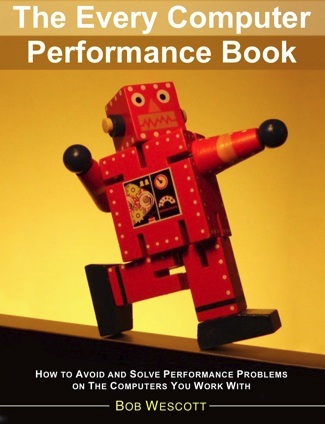The other day I was buying three potatoes and an onion for a soup I was making. The new kid behind the cash register looked at me and said: “That will be $22.50.” What surprised me was the total lack of internal error checking at this outrageous price for three potatoes and an onion. This could be a simple case of them not caring about doing a good job, but my more charitable assessment is that he had no idea what “normal” was, so everything the register told him had to be taken at face value.
Don’t be like that kid ...
On any given day you, as the performance person, should be able to have a fairly good idea of how much work the users are asking the system to do and what the major performance meters are showing. If you have a good sense of what is normal for your situation, then any abnormality will jump right out at you in the same way you notice subtle changes in a loved one that a stranger would miss. This can save your bacon because if you spot the unexpected utilization before the peak occurs, then you have time to find and fix the problem before the system comes under a peak load.
How do you develop a sense of what is normal? Easy. Every day look at the meters, but before you do make your best guess as to what they should be showing you. Over time you’ll get better and better at knowing what is normal. Once you know that, then the abnormal jumps right out at you.
I’ve retired from high-tech and I now work at Ben & Jerry’s as a tour guide (Yes, there is life after high tech and it can be a lot of fun. Come see me tour sometime.) Having the right number of staff is critical to giving our guests a good experience. So every morning we each guess how many people will take the tour that day. You can play for free, or bet a quarter. It’s amazing how close people come to the exact number of guests taking the tour after playing this game for just few months.
A key difference between an expert and a non-expert is the ability to rapidly spot the odd thing in a sea of normal data. Take the time to become the expert in your performance world. This is an invaluable skill that you can’t buy.
Bob Wescott is the author of “The Every Computer Performance Book”.
Related Links:
More information on this, and many other useful ideas, can be found in Wescott's book:











